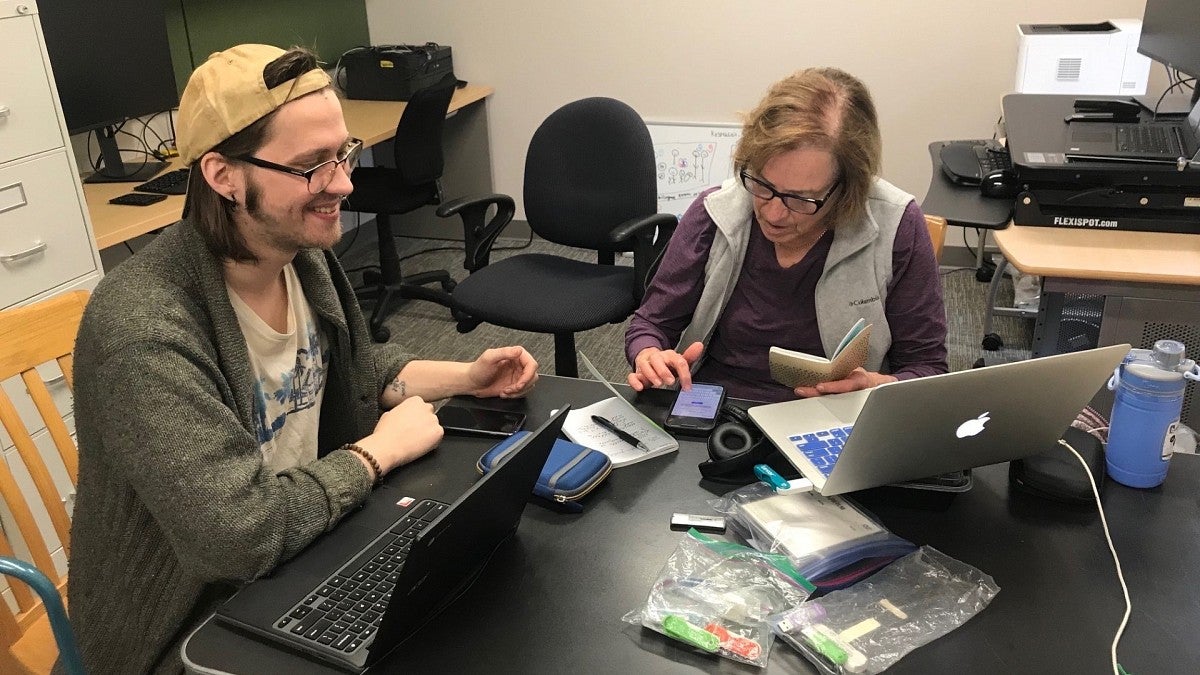Undergraduate research focused on Latinx studies-related issues takes the stage at an upcoming University of Oregon forum.
Four undergraduate students will present their research at the Latinx Studies Experiential Learning Fellowship Forum from 5 to 6:30 p.m. Tuesday, Feb. 13, in Room 146, Erb Memorial Union. At the forum, undergrads will showcase their research, which includes language revitalization, preservation and environmental justice radio reporting.
The Latinx Studies Experiential Learning Program offers funding for a limited number of undergraduates to conduct research or pursue creative projects under the supervision of a faculty member. The projects can be based in any discipline, as long it's related to Latinx studies. The program takes applications on a rolling basis.
Ernie Leyva, who's studying children's behavioral health and Spanish, saw personal meaning in his research on the culture and language revitalization of the Taíno people, indigenous to the Caribbean.
"I was drawn to research the Taíno people's culture and language revitalization because this was a topic that involved my own Arawak ancestors," Leyva said. "It's also something that I was never taught about in school or from my family growing up due to the stigmatization that comes with anything regarding Indigenous background from the Latinx community."
Alex Moreno likewise found an interest in Indigenous language work. The linguistics and Japanese major spent hours transcribing a dormant language of the Nicaraguan Caribbean coast from cassette tapes and floppy disks, continuing language preservation efforts that began in the 1980s.
Moreno worked with Colette Grinevald, who was a pivotal member in the founding of the Department of Linguistics in the 1970s and is now a professor emerita at Université de Lyon 2 in France.
"When I brought in what I had done, she was pleased with my work despite its flaws," Moreno said. "She helped me realize that I don't have to be perfect and neither does my work to still be valuable and appreciated. This went a long way towards making me feel like less of an imposter working as an undergraduate research assistant."
The forum also includes research by Za'Nya Lyons, whose research is "Code-switching Pattern of Preschoolers from Spanish-speaking Backgrounds."
In addition to providing undergraduates with research opportunities, the program is a way for students to see the impact that academia can have.
Maya Rios, a Clark Honors College student studying data science and Spanish, used her fellowship funding to understand issues that Latinx people face throughout the United States, especially the Pacific Northwest. She worked with KTUP Radio Poder 98.3 FM in Woodburn, to feature the work of Latino and Spanish-speaking scientists, researchers and activists to increase scientific literacy in Oregon's Latino communities.
"It is common for scientific research and scientific communication to be written in English and then translated into other languages," Rios said. "What's special about our project is that all of the research is conducted in Spanish as the first language, so there is nothing lost in translation when producing our work for our Spanish-speaking audience."
—By Henry Houston, College of Arts and Sciences
—Top photo: Student Alex Moreno (left) and Barbara Assadi, another member of the Rama Language Project, transcribe the Rama Cay Creole sections of the cassette tapes.


